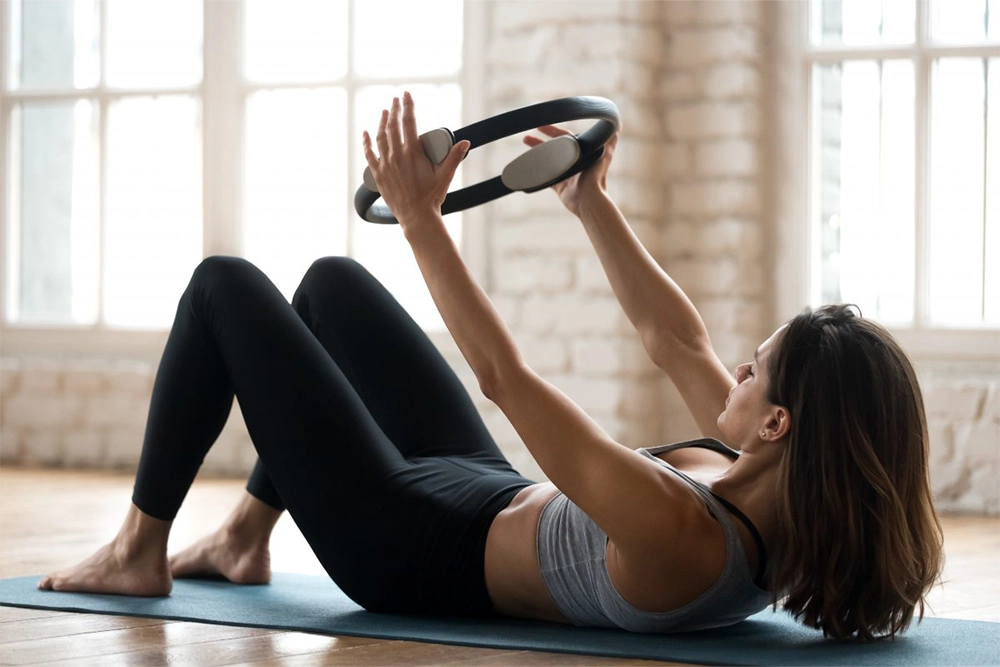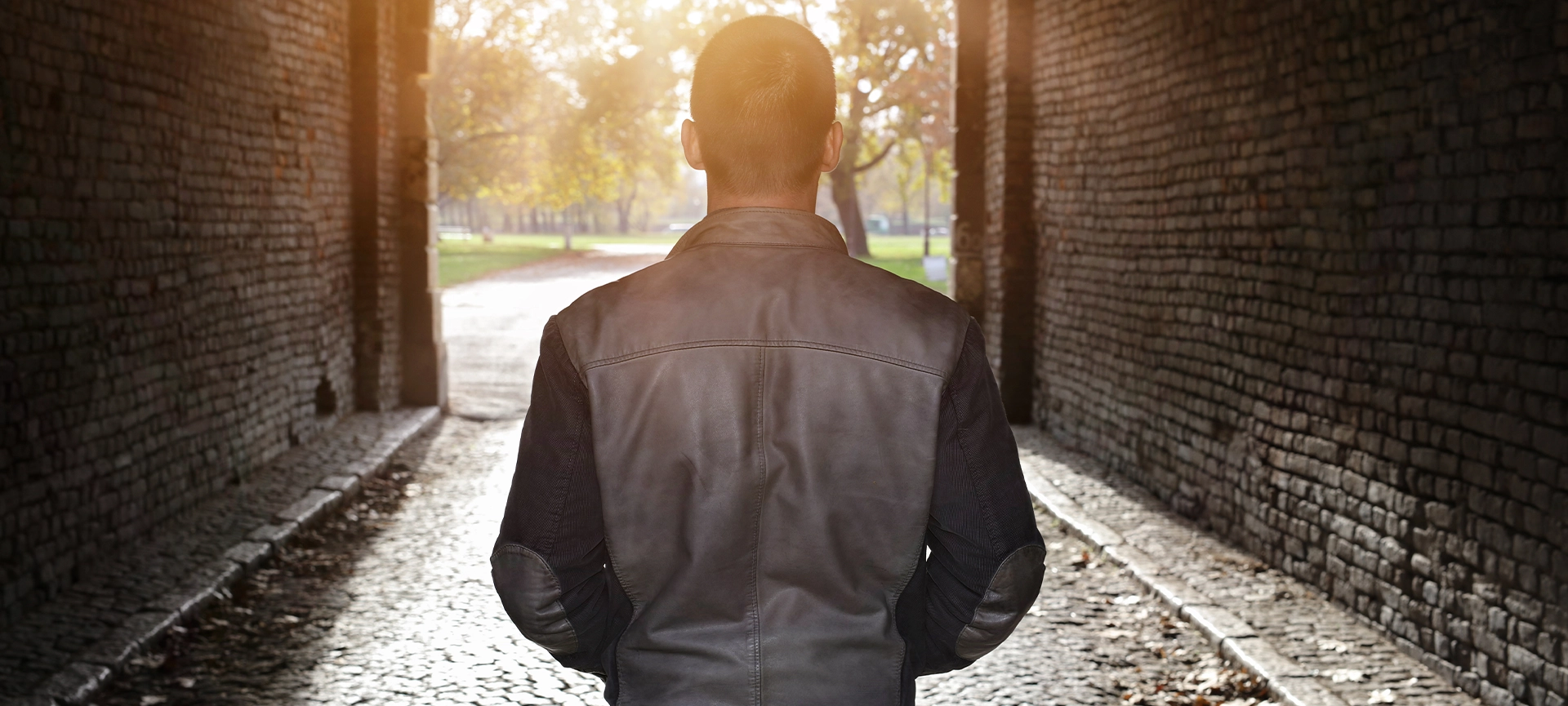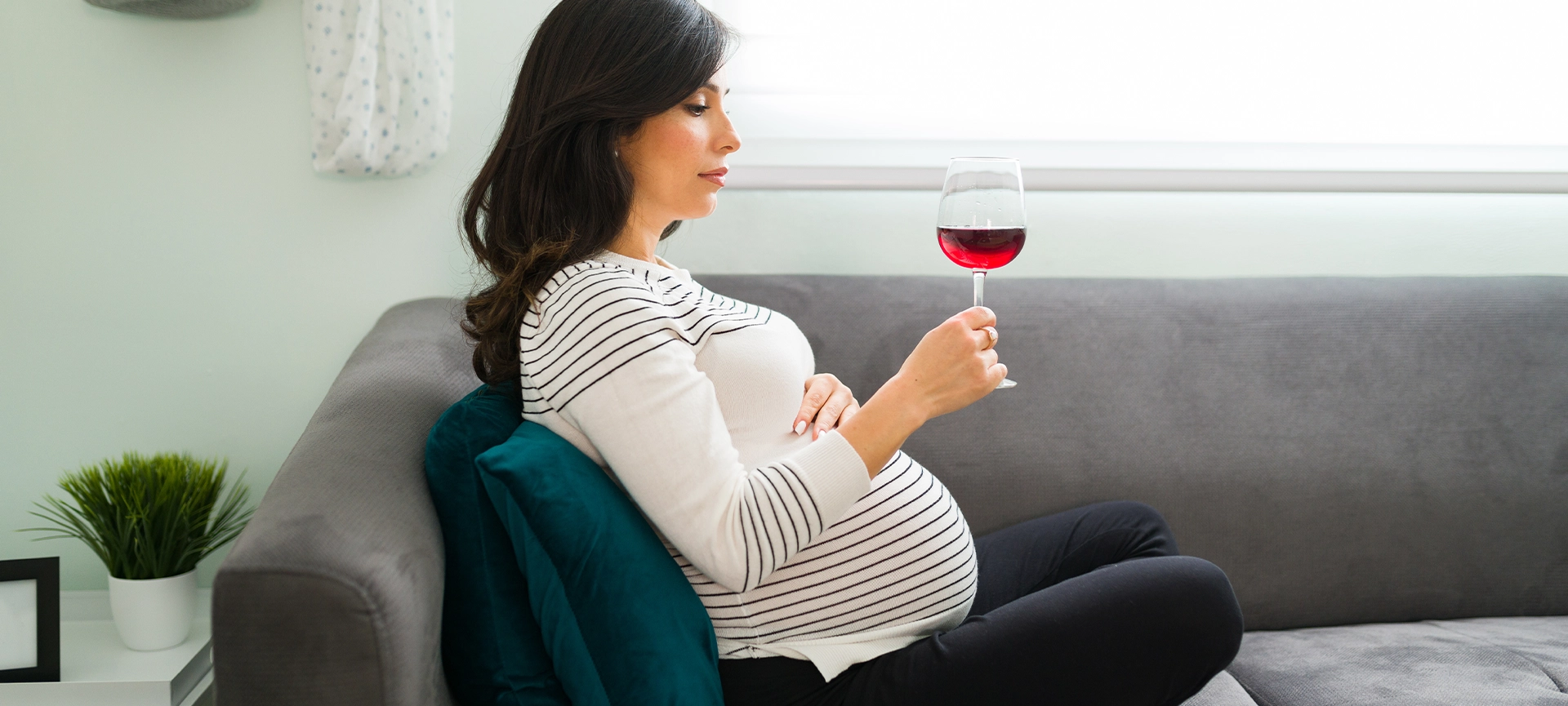Fitness programs like Pilates have been getting a lot of attention as an active part of addiction treatment. Many addiction rehabilitation centres are now incorporating workout regimens into their plans for recovery.
But what is the science behind these exercises that it has become an essential part of addiction treatment? We’ll discuss that here. Also, we will look at other treatment programs that can help you or your loved one who is going through recovery from addiction.
Let’s take a more in-depth look into Pilates as well as other fitness programs for drug addiction treatment.
Related article: Fitness and Wellness at Addiction Rehab Toronto
What is Pilates?
Pilates is a form of exercise that is gentle. It concentrates on the individual’s body alignment as well as core strength. Pilates conditions the body by targeting individual groups of muscles through rhythmic movements. It is not the same as aerobic exercises or gym workouts.
By learning Pilates, you will know more about the way your body works. You get to understand what you ought to do so that it will be healthy and balanced. The Pilates instructor will discuss techniques on proper body alignment as well as posture.
When you know how to stand straight and hold your body correctly, your core muscles will become stronger. With Pilates, you will also become more aware of your body. It means you can correct your posture. In doing so, you can influence your mood and confidence.
With exercises that work on individual groups of muscles, the risk of straining the other muscles are less. There is more focus on the way you breathe as you do the exercise routine. This kind of concentration is necessary so that you will have a complete workout for your mind and body.
When you get to work on your body’s core, you can also strengthen and straighten your spine. You will also be able to correct your breathing so that you can adequately oxygenate your body. It ensures that you will improve both your body’s strength and flexibility.
Pilates exercises improve your balance and coordination. It enhances muscle endurance and strength while making you more flexible. Pilates classes are suitable for any fitness level. You can modify the intensity of the exercises as you go along.
The Science Behind Exercise for Addiction Treatment
There have been studies about exercise and its role in effectively helping recovering individuals to kick their bad habits. Does exercise help in treating addiction? The reviews on it say yes. Working out protects recovering individuals from relapse, which improves their abstinence efforts. It speeds up the recovery process while creating new good habits.
So, what makes working out an effective strategy for addiction treatment? The primary reason is that those exercise routines help in improving mood and relieving anxiety and stress. It makes it much easier for recovering addicts to deal with their irritability and cravings.
Also, working out can improve the quality and quantity of sleep. Good sleep means that recovering individuals are well-rested, making their minds more equipped to face any temptation. Exercising regularly also gives people a routine or structure in their everyday life. It is beneficial for people who are in rehab or while recovering at home.
Having a fitness program like Pilates is not just about having a distraction from the cravings. A big part of the reason why working out works in treating addiction is that it replaces the bad habits. Just like commonly abused substances, working out can produce a kind of natural high. It improves a person’s sense of well-being while providing physical benefits.
Just like drug or alcohol use, Pilates and other exercises work in a positive reinforcement system. What this means is that when you do an action, you will be able to produce the response that you desire directly. So, if you exercise, the reward pathway of the brain is engaged, and you experience pleasure and euphoria.
Exercise for Addiction Recovery
If you are recovering from an addiction, then you should know that you can try out any activity. What’s important is that you get moving. Any form of workout is better than none at all. When you get active, you help yourself cope with the withdrawal and cravings. Also, you help your body heal from the adverse effects of addiction.
What you should also know is that there are exercise programs that can provide you with more benefits while you’re recovering from addiction. For example, exercises that can incorporate mindfulness is a useful tool for addiction recovery. It is because you can learn about how you can deal with your anxiety, negative thoughts, and cravings.
Pilates is an excellent example of this type of exercise. It is an exercise program that teaches people how they can control both the body and the mind. It can work by learning how they can deal with doubts and focus on the exercise.
Individuals doing Pilates can build on their mind’s strength. It becomes beneficial when they experience moments of weakness, especially when tempted to return to drug use. Pilates has been growing in popularity over the years. For sure, several fitness centres are offering Pilates classes in your city.
Related article: Sober Activities to Enjoy When Recovering from Drug Addiction
Nature Walks for Substance Addiction Recovery
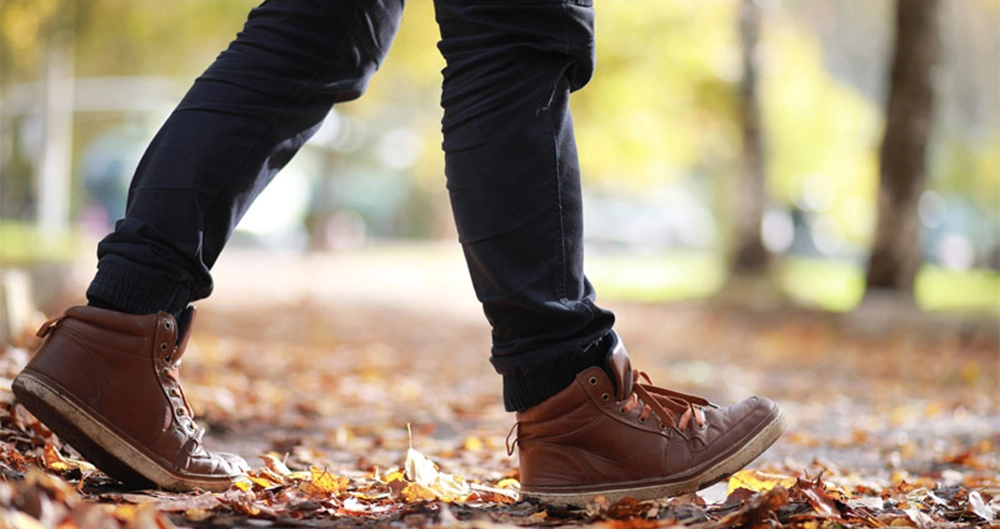
Another productive activity for drug or alcohol addiction recovery is nature walks. When you spend time in life, you give a boost to your mental health. Spending time outside can provide stress-busting and mood-boosting benefits.
Apart from the physical activity of walking, seeing and experiencing wildlife can give you positive feelings. Nature walks can clear your mind of stress and troubling thoughts. Walking around nature is excellent for any level of fitness. You can walk at your own pace and enjoy it.
You will also benefit from fresher air in the nature park. When you’re always in the city, you’re breathing in polluted air. Being in nature allows your lungs to breathe in the fresh air. That means more oxygen gets into your system, which is excellent for your overall health.
Admittedly, there are plenty of lush natural areas around where you can join nature retreats. You don’t have to stay there for an extended period. You can spend a weekend or just a day for a hike. It can be a beneficial part of your sobriety strategy.
Consistency is the Key to Awesome Benefits
When you are going to create your fitness goals, you mustn’t set impossible ones. Choose targets that are enough to challenge you but are still achievable. For example, you want to go running, but your body has weakened by years of drug use. Don’t expect to run the whole way. You can jog for a few minutes and then a brisk walk for when you feel you’re running out of air.
The vital part of building a workout routine or exercise habit is having a schedule and sticking to it. You should also track your progress so you’ll be more inspired to push yourself. Also, share your goals among people who are supportive of your fitness goals. It will be fun to talk about how far you’ve gotten when it comes to your progress over time.
Scientific studies have shown that exercises are beneficial for addiction recovery. Be sure to include this in your action plan for recovery or treatment regimen. Yes, it may not be able to cure everything. However, it can help you stay active while strengthening your physical and mental health. It will equip you to face the many challenges in drug addiction recovery.
Pilates Therapy for Addiction Recovery
When you’ve become dependent on a particular substance, you miss out of your free will. It also usually leads you to suffer from social disconnection. Apart from that, your mind and body become disengaged. With a pilates program, some of the damages treated.
To start, don’t worry that you’re not physically fit when joining a Pilates class. What’s great about this program is that it can adapt to your fitness level. The focus is first is your core or physical centre. Gradually, you’ll be building your strength using many different forms of exercise.
Furthermore, you’ll be spending as much time as you need to master a single posture. Achieving the perfect form is what’s important. It is neither the repetition nor the speed that counts. You’ll appreciate the time it takes to master the postures. It will teach you so much about patience, focus, and endurance.
Related article: Can Yoga Help in Addiction Recovery?
How Exercise Can Help in Addiction Recovery
During the time that you were using illicit substances or alcohol, the chances are that you weren’t exercising much. Your diet was also probably bad. In rehab, they will address such things. But it’s not just about making you work out or eating healthy foods. It’s more about an overhaul in your lifestyle.
By incorporating a Pilates program into your lifestyle, you can enjoy plenty of benefits. For a start, doing exercise routines can fill in the void. Imagine, that’s the time you would have been spending getting and consuming drugs.
In the same way, exercising can prevent you from getting bored. When you’re tired, that can be a trigger to relapse. But most important of all is that working out will allow your brain to release dopamine to make you happy. You will also enjoy healthier sleep patterns.
Pilates Program as Part of the Bigger Addiction Treatment
Even though Pilates exercises are great and can provide so many excellent benefits, it is not enough. You should remember that Pilates exercises alone won’t suffice in treating your addiction. Incorporate it into a wide array of effective modalities. Here are some of the examples:
- Trauma therapy – this can benefit recovering addicts who have unresolved issues in the past and are struggling at dealing with it.
- Cognitive behavioural therapy – this can encourage you to develop healthier patterns so that you can better face your stressors.
- Psychotherapy – this therapy will be able to address the reasons and motivations you have for using illicit substances.
- 12-step programs – attending these sessions will help you in building your support network with people who are going through similar challenges.
- Dual diagnosis treatment – this treatment targets any personality disorders you may have as well as depression or anxiety.
In general, when you will undergo a Pilates program, you will do so as a part of a group. You will be able to interact with peers who are also in recovery. It is essential and beneficial because you can undo your self-imposed isolation.
You will also have a chance to build social interactions that do not have anything to do with illegal drugs or alcohol. Such a process will prepare you for your graduation from the program.
You can relearn how it is to relate to other people in various settings. Also, you will be able to develop a structure for your day to day life that is enjoyable. Combining it with the things you’ve learned in nutritional counselling will allow you to reap the best results.
Physical Fitness and a Healthier Mind and Body
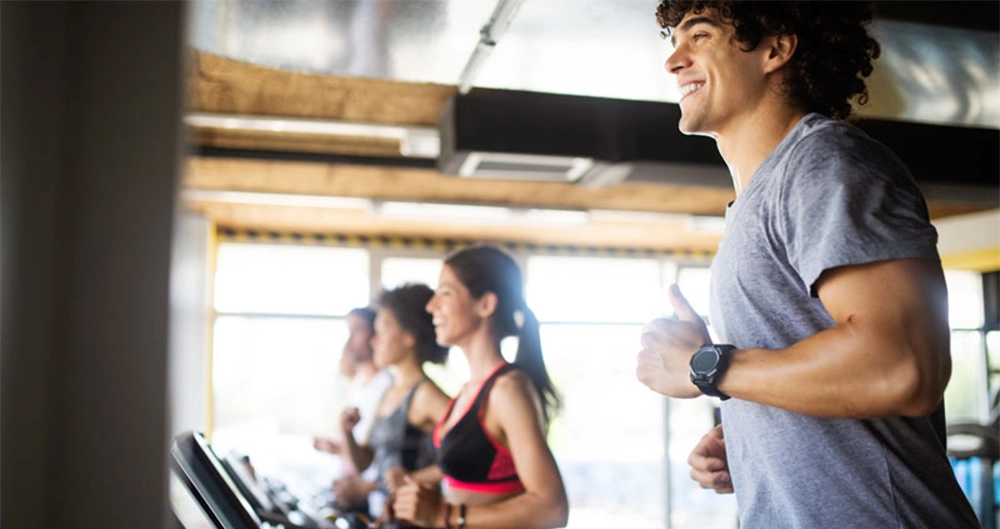
Studies have shown that physical fitness is one of the critical factors to achieve long-term sobriety. There’s a link between working out and the reduction of substance use. To be more specific, aerobic exercises can help in promoting brain repair while boosting your mood during drug addiction recovery. It doesn’t have to be intense. You only need to start with light exercises every day until you build your stamina and endurance.
Exercises like Pilates have many benefits for your brain. However, there are a few specific mechanisms that can help you heal from drug addiction. The first one is that working out can improve the way the brain processes functions. It includes regulating behaviour, problem-solving, and planning. Such cognitive functions weaken when you are abusing illicit drugs.
Exercising can also develop your willpower. It means you will be more equipped to avoid any temptations that may arise. You will also be able to stick to your healthier habits. Exercising can significantly help in controlling your emotions and improving your memory.
Many individuals who are trying to recover from their addiction also suffer from mental health issues like depression and anxiety. Fortunately, working out can also address those. Physical fitness can reduce the levels of depressive symptoms, stress, and anxiety. It can even increase one’s pain tolerance.
You will notice that most of the substances that get abused have those same effects. That’s why exercise routines can work as a healthier coping alternative to drug or alcohol use. So, instead of self-medicating, try going for a short walk around your neighbourhood. That will be a good start.
Related article: Easy Ways on How to Set SMART Goals for Drug Addiction Recovery
Aerobic Exercises for Relapse Prevention
You must know what type of exercise you enjoy best. So, take your time when you’re looking for a workout regimen that will suit you. Try as many classes as you like. If you want to get the benefits for your mental health, the best exercises are aerobic exercises.
You may try running or hiking. Yoga and Pilates are also good. These exercises will allow our bodies to produce a lot of hormones that will make us feel good. It will also promote a positive mood that is long-lasting. Your mental health will surely improve with these exercises.
Meditative Exercises for a Calm Brain
One of the examples of a meditative exercise is hiking. It is beneficial because it can produce calming effects on your brain. Being in nature is useful in making you feel good. Studies have stated that nature walks help reduce the stress hormones that we have in our bodies.
In the same way, Pilates is great as a complementary treatment to your addiction recovery program. With Pilates, the controlled movements aim to connect your body and mind. This exercise can help in enhancing your concentration, self-control, and self-awareness. These are essential factors that contribute to a successful recovery.
Meditative exercises are good at making you master control. You get to control your muscles when you hold a particular posture, for example. In the same way, you will be equipped to manage your mind better. When you can do this, then you can keep the evil thoughts and feelings at bay. You will have a calmer mind.
Healthier Diet for Better Mental Health
You have to take note that the food you consume has a significant impact on your mental state. That’s why you should try your best to eat healthy foods. This way, you can better support the brain as you go through your addiction recovery.
Eat a lot of veggies and fruits every day. These foods have high levels of essential nutrients that the brain needs to produce mood-regulating hormones. One recommendation from experts is that you ought to eat a lot of dark and leafy greens as well as root veggies to improve your nutrition.
Also, include healthy carbs in your diet. Try quinoa, oats, and sweet potatoes so that you’ll have a boost of serotonin which is a feel-good hormone. Such complex carbs are also full of B vitamins that help the chemicals in our brain remain balanced. It can also prevent depression.
Try introducing foods that are rich in omega-3 fatty acids to your meals as well. These foods will help your brain in repairing itself from the damages done by substance abuse. There are a lot more foods that are both healthy and delicious that you should try. Feel free to discover what you enjoy best.
Related article: How to Build Healthier Eating Habits during Drug Addiction Recovery
Healthy and Consistent Routines

Having a consistent and healthy routine may be a challenge for most of us. It can be easy to start it, but the tricky part comes in maintaining it. You have to remember to stick to the routine you have planned for yourself. In the long run, you will be able to develop sound and healthy habits that will last.
You shouldn’t wait for the motivation to kick in before you do a workout routine. What you have to practice is self-discipline. Doing so, you will reap the many rewards of accomplishing that you have set yourself out to do. Try writing down the routine that you want. When you see it, you can assess if you’ve placed too many things to do for the day. So, you can revise them as you please.
At first, try on focusing on a few things that you want to improve. For example, get more exercise done, give yourself time to prepare a healthy meal, or sleep at a particular time. You can develop a simple routine with those goals in mind.
Physical fitness is an excellent supplement for treating drug addiction. Anyone can enjoy the benefits of exercising. Your physical and mental health will improve, and you will feel much happier than before. As a recovering addict, you will be able to maintain your sobriety more smoothly as you help your mind and body heal.
What Benefits Can You Get from Pilates Programs?
Pilates is not just working out. If you’ve tried doing Pilates exercises, you may already know that it is not just about sculpting your body. Pilates also works on clearing your mind. It gives you the much-needed energy and peace of mind. Let’s take a look at the other benefits of doing Pilates exercises.
Improved Memory
When we reach our 20’s, we will begin losing around a percent of our hippocampus. It is the part of our brain which is responsible for cognitive function and memory. In a literal sense, our minds are shrinking.
For many years, scientists believed that we had a particular number of cells in our brains when we were born. However, recent studies have discovered that actually, the brain can create new brain cells. It slows down or reverses the shrinkage of the brain.
So, what does this mean? It means that you can have a better memory. It also lowers your risk of developing Alzheimer’s disease. Other benefits include higher IQ, better learning, as well as problem-solving.
Many studies have stated that exercise regimens can help in improving neurogenesis. The creation of new brain cells is called neurogenesis. Also, exercising can protect existing brain cells because it can increase the production of BDNF. It is a compound that protects the nerves.
The changes are most significant in the hippocampus, which is the area responsible for learning and memories.
Brain Training
When you learn new activities such as Pilates exercises, you allow yourself to train your brain. When you do this, the white matter density in mind increases. White matter is the fibres that allow the neurons to communicate.
When the neurons form, but they don’t get connected, then they will die. That’s why the white matter is vital to better brain health. When you’re learning something new like Pilates, know that it is a significant part of your brain fitness. You get to practice new movements that will challenge both your mind and your body.
Deeper Activation of the Muscles
When the muscles are intensely activated, that means that the nervous system functions better. Whenever we move, there are specific parts of the brain that we use. Our minds then send signals to muscles through our spinal cord.
As you go along in your Pilates exercises, you get to learn to engage particular muscles voluntarily. An example of this is activating the deep core. When this happens, then a movement chain that has been dormant for a long time awakens.
For example, our core is made up of twenty-nine muscles, but we only recognize the six-pack. That’s why when you learn to use all of those muscles, it would be like cleansing the nervous system. With a healthier nervous system, you will have a brain that can better communicate with other areas of your body. It also releases mood-boosting and stress-fighting hormones.
Quiet Mind and Calmer Emotions
You may already know something about the benefits that you can get from mindfulness meditation. Here are some of them to sum up:
- Improves cardiovascular health
- Lowers the blood pressure
- Instills good habits
- Helps in fighting addictions
- Reduces terrible feelings and negative emotions
- Aids in relieving chronic pain
- Relieves you of stress
- Opens your mind to creativity
- Makes your senses sharper
- Aids in treating insomnia
- Helps in relieving you of depression and anxiety
When we think of meditation, what comes to mind is probably the image of Buddhist monks who are chanting. However, we’re wrong at this because we believe that it’s the only way to practice mindfulness in our lives.
But really, mindfulness is not so much about spirituality. It focuses on concentration and being able to quiet the mind. You get to focus on what is here and now while dismissing the distractions that emerge.
With Pilates, you will learn how you can concentrate on a singular thing which is your body. When you are doing Pilates exercises, you need to be able to clear your head from distractions. You must get the proper form. Of course, this takes a lot of practice, so take your time and learn to be patient.
Pilates exercises also allow you to enjoy the benefits of meditating without having to sit still. You won’t feel that you’re just wasting your time. You’ll be able to gain the benefits of mindfulness if you’re comfortable with your activity.
For some people, they get that through traditional meditation. However, others find it more beneficial if they take Pilates classes where they can learn mindful movement. Pilates cleanses your mind while you are exercising your body.
Stress Tension Relief
Maybe you already know about the “fight-or-flight” mechanism response that we all have when faced with stressful situations. Whenever we are in that situation, the body will release stress hormones so that we will be equipped to fight or to flee.
During a stressful event, the body becomes ready to fight or flight to be able to survive. However, in our modern-day scenario, we cannot run away whenever we are stuck in traffic or compete with our abusive boss.
That’s why we need physical activities because it can metabolize any buildup of our stress hormones. If we do not exercise, the stress hormones get stuck in our bodies. It results in muscle pain, spasms, and hypertension.
Pilates exercises can relieve the tension that has built up in your muscles. It is possible because of the gentle stretching as well as the gradual conditioning from the activities. Your tight muscles will loosen. Your body and mind will then be stress-free.
Tames Your Stress
Drive stress out of your body. It’s more critical to prevent pressure from entering the mind. You should be able to address the causes of your stress so that you will have relief from stress that is longer-lasting.
Pilates can help in taming your stress and improving your well-being. The exercises will teach you to look for opposition inside the body and how to use it so that you can gain better control of yourself. The physical demands of the exercises are met using mindfulness and steady breathing. You can respond better to the stresses of your days when you have mastered this.
Experience Greater Happiness
Pilates can help you be happier. When doing exercises, the body stresses positively. Doing your favourite workout allows your body to release endorphins that cause you to feel great. When you enjoy doing your workout routine while staying focused, you will feel calmer and happier when you finish it.
Apart from the fact that your body releases happiness hormones when you exercise, you will also feel happy because you know you have accomplished something. As someone who is recovering from addiction, you may think that you have ruined your life.
Sometimes, you feel that there’s nothing you can do to turn your life around and be a better person. However, this is where you got it wrong. For as long as you are alive, there is always something that you can do to make things right.
You can start with simple exercises that are very achievable. You will feel that you can still do something and that you are in control of your body and mind. In doing so, you’ll be able to think that you are gaining back control in your life. It is something to celebrate.
Encourages Creativity
A mind that is creative and open will make you experience your life to the full. You will be able to come up with new and inventive ways on how to deal with the challenges of life. Mindfulness meditation and exercise have been proven to improve one’s creativity.
When you are better equipped at controlling your mind, what you think, and what you feel, you will be calmer. It means that your account is no longer busy worrying about things. You will be able to think about other ideas and plans. It is great because you can finally tap into your creative side and discover other activities that you’ll love.
Combining the two is possible with Pilates exercises. You will get better results both for your body and your mind. It may be tough at first, but Pilates is not about getting it right as fast as you can. You can take your time until you have mastered the movements.
Better Control of Emotions
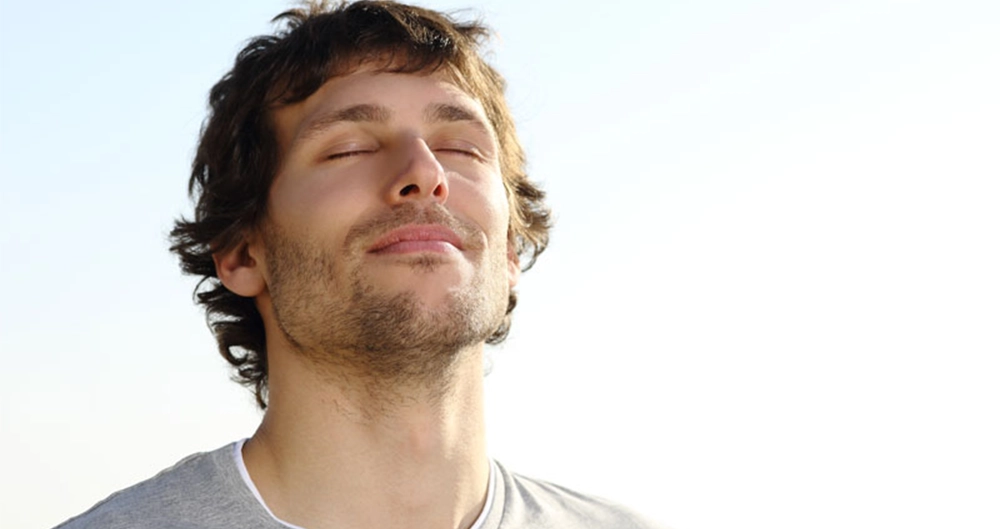
Did you know that our breathing and our emotions are connected? Yes. Some studies showed how various emotional states cause particular breathing patterns. Imagine yourself in a frightening situation. Your breath is faster compared to when you are experiencing something pleasant, right?
What’s interesting about the study is that it states that different patterns of breathing can evoke specific emotions. What this means is that you can breathe in a way that will make you calm or anxious.
Among the six principles of Pilates is breath. When you can control the way you breathe, that’s already a significant benefit. Many of us are actually “lazy-breathers.” In Pilates, you can learn techniques that will help you in calming your mind so you can deal with stressful situations.
Releases Emotional Tension
Experts in mind/body will say that you can tell so much about an individual’s personality just by looking at their posture as well as observing how they move. We store emotions like anxiety in our bodies.
When we want to shout, our jaws clench, we feel shy; we slouch. When suppressing fear or sadness, we tighten our hips. With Pilates exercises, our muscles releases. We can control our core muscles more.
Releasing the muscles holding the emotional tensions allows you to loosen up and let go of any emotional baggage that has been burdening you for a long time. It alone is a great benefit of doing Pilates exercises.
Being Yourself
As people living in the modern world, we are under constant stress. We feel we need to conform and that we need to meet specific standards. We’re always pushing our boundaries so we can meet deadlines, perform better, or act in a certain way.
Pilates can teach you to respect your body and also be content with yourself. The practice of doing Pilates exercise focuses on working first within what you can do. After that, you can then move to build your flexibility and strength.
Once you are more confident with the movements, then you will have both the strength and the motivation to move up to the next level. The progress does not work by comparing yourself to another person. Our standards and the priorities distinguish that which you find meaningful.
By learning how to respect your body in this way, you can learn to appreciate everything else in your life. You can start living according to your desires and your priorities. You will be free from the rat race of life where you always feel the need to compete with others.
Becoming More Confident
Your posture can influence your confidence. For example, when you sit or stand straight, that can make you look and feel more confident. Doing Pilates exercises is about practising good posture and also right body alignment.
Good posture is not only good for the health. It is also beneficial to your sense of self and confidence. Just as with breathing, you can convince yourself that you feel good. Imagine if you can gain better control of your posture that you will feel more confident of yourself and your abilities.
As a recovering addict, you may feel so down because of the things you’ve done in the past. There have been times when you’ve disappointed yourself and your loved ones. You may acknowledge those but don’t dwell on them. The important thing is to move forward and believe in yourself that you can still improve. That is the point of doing exercises. You can practice control and discipline. As you get better, your self-confidence will also become stronger.
Takeaway
Pilates exercises, combined with a healthy diet as well as other workout regimens, can significantly improve the individual’s health and well-being. Pilates is more effective when practising other holistic treatments, such as personal training, fitness, yoga, and even acupuncture.
These treatments will be able to enhance your senses as you incorporate them into your daily life. You will start to notice that your quality of life is improving. A combination of all these treatments will surely be helpful for anyone going through addiction rehab, detox, or recovering from alcohol or drug addiction.
If you have any questions about Pilates programs for treating drug addiction, don’t hesitate to contact us. We’ll be happy to answer your questions about it, and other treatment programs that can help you or your loved one overcome addiction.
Related article: How to Tell if Your Loved One Has a Drug Addiction



